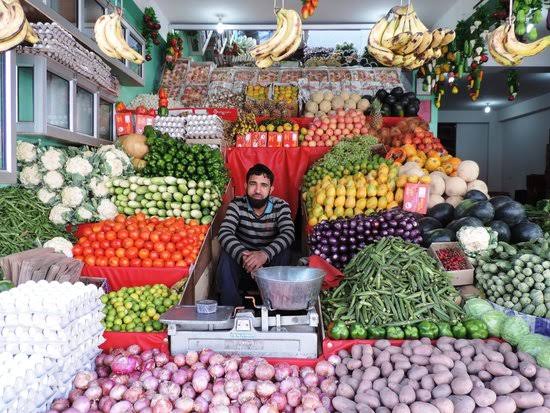
A sharp spike in food prices has left Kashmiri households reeling, following the government’s decision to remove regulatory oversight on essential commodities.
The removal of government controls on essential commodity prices has plunged Kashmir into a food price crisis, leaving households struggling to keep up with the soaring cost of basic necessities.
The deregulation has handed full control to vendors and traders, resulting in a chaotic market where prices vary wildly and essentials become increasingly unaffordable.
Vegetable prices have surged beyond previous highs, with peas now at Rs 180 per kg, tomatoes at Rs 80, and potatoes at Rs 50. Mutton, a dietary staple in Kashmir, has reached Rs 700 per kg, forcing families to reconsider their food choices and cut down on consumption.
This shift comes after the Ministry of Consumer Affairs deemed an old regulatory notification irrelevant, stripping the Food Civil Supplies and Consumer Affairs (FCS&CA) Department of its power to regulate prices.
Without the fixed price lists and enforcement mechanisms that were once in place, the market has been left to operate without oversight.
For consumers, the consequences have been immediate and severe. With each neighborhood now experiencing different rates for the same products, consumers are finding it harder to budget and plan their expenses.
“Prices used to be consistent across markets because of regulation. Now it’s like a free-for-all,” said Manzoor Ahmad, a local from Srinagar uptown.
The deregulated market has also exposed the Vallye’s vulnerability to supply chain disruptions. Kashmir’s reliance on the Srinagar-Jammu National Highway for essential goods, combined with frequent closures due to weather and landslides, makes it susceptible to shortages.
Traders, now free from regulation, can take advantage of these conditions, leading to further price inflation.
The rising cost of mutton, in particular, has become symbolic of the crisis.
As a central element of Kashmiri cuisine, its steep price increase has not only strained household budgets but also affected cultural practices. Families accustomed to serving traditional dishes at gatherings are now being forced to scale back.
Small businesses, such as restaurants and roadside food vendors, are equally affected. “Our costs have doubled, but we can’t pass that on to customers without losing business,” said Bashir Ahmad, who runs a small eatery in Srinagar.
For homemakers like Saleema Akhtar, the situation feels hopeless. “We have had to make tough choices, cutting back on what we eat. It’s not just an inconvenience—it’s a matter of survival,” she told the news agency Kashmir News Trust.
The absence of regulation has also led to allegations of profiteering and hoarding, with traders taking advantage of the lack of oversight to manipulate prices. People said that the government underestimated the impact of its decision to deregulate and failed to account for Kashmir’s unique logistical challenges. [KNT]




